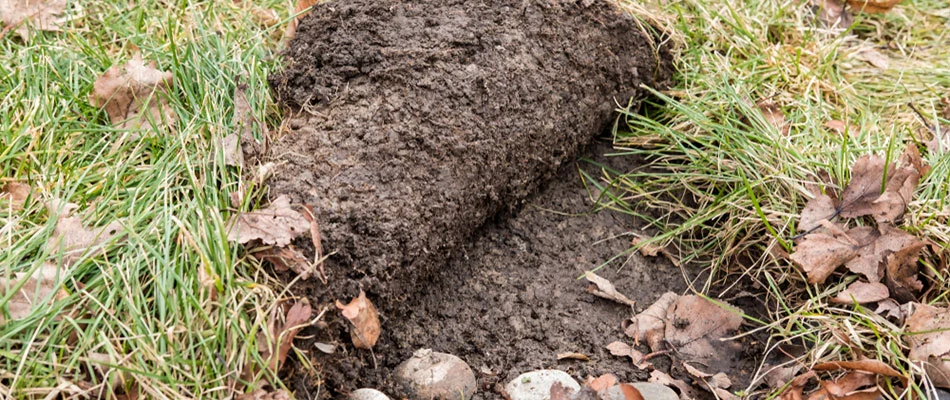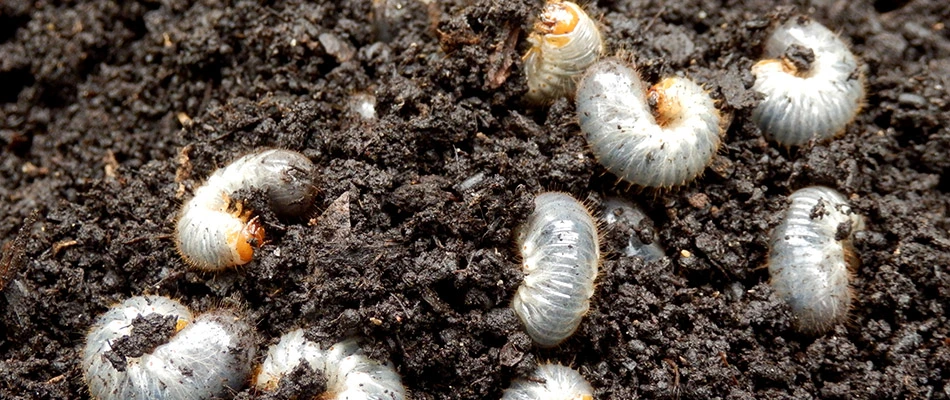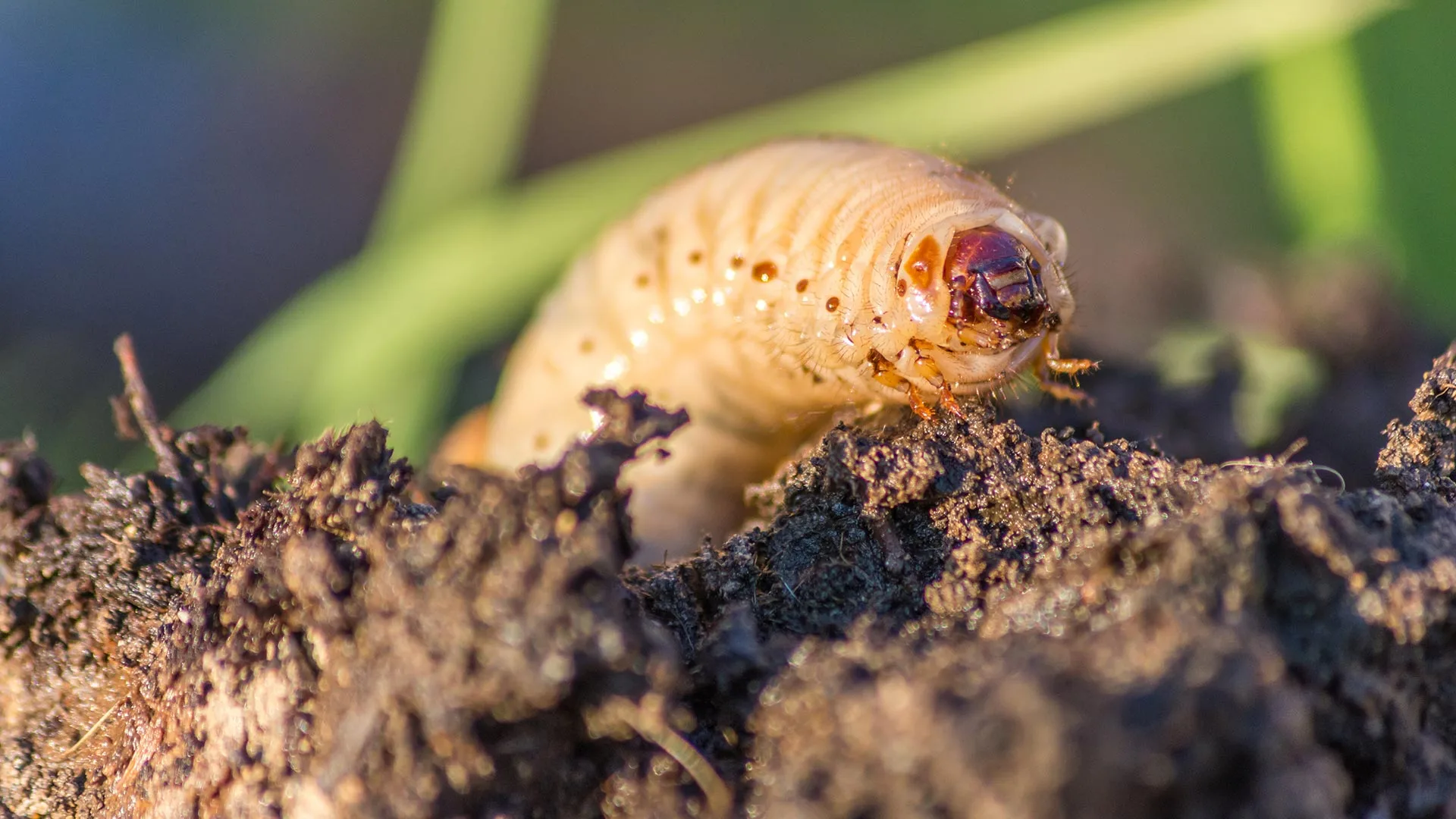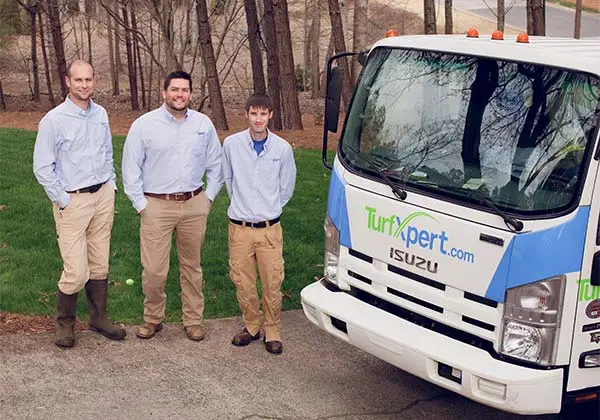Grubs infestations are concerning and, unfortunately, very common in Georgia. Because our state is biologically diverse, insects and animals are plentiful! However, as impressive as this can be, it can also cause many problems for property owners looking to protect and nourish their lawns. The menagerie of insects outside means different species of beetles can lay their eggs in your soil. The larvae, known as grubs, may then hatch from the eggs and use the roots of your lawn as a food source. Grubs are extremely destructive because they can then destroy the roots of your turf! However, there are some tell-tale signs that you can be on the lookout for that indicate that your lawn is infested with grubs and that you should schedule a grub control treatment ASAP! For one, an infested lawn may feel spongy when you walk on it and will lift up like a carpet if you tug on it. If you notice many grubs in one area or an increased presence of animals on your lawn, this can also indicate that your lawn is infested with grubs.
A spongy lawn can indicate a grub infestation.
One of the tell-tale signs that your lawn is infested with grubs is if it feels spongy when you walk on it. Grubs eat the roots of your grass, and if they chew through your roots, your lawn can feel spongy when you walk on it because it will no longer be anchored to the soil. If your lawn is feeling spongy when you walk on it, you should reach out to a lawn care professional right away to determine if grubs are the reason for it!

Japanese beetles and European chafers are two common beetles that lay eggs in lawns in Georgia.
Grass that lifts up like a carpet can point to a grub infestation!

Unfortunately, as grubs eat the roots in your lawn, your grass can become detached from the soil underneath. The severed roots may no longer provide the anchor they did, and the grass can essentially act like a carpet and lift up! If you notice this, this is a tell-tale sign that your lawn is suffering from a grub infestation and you should reach out to lawn care professionals immediately so you can put an end to the grub infestation.
If there are many grubs in one spot, your lawn may have a grub infestation.

Because Georgia is home to many insects, grubs are actually pretty normal. If you see a few on your lawn, you shouldn't worry too much yet. Most things in life aren't harmful in moderation. However, if you notice many grubs in one area, that could mean a grub infestation is brewing in your turf.
Keep this in mind when judging whether your lawn is infested or not: Are there 10 or more grubs in a 1-square-foot area? Once your count hits this number or more, it's definitely time to schedule a grub control treatment! Grubs are extremely destructive and can ruin your lawn if left alone!
An increased animal presence on your lawn can indicate a grub infestation.
Here in Georgia, we see an abundance of wildlife! However, if you notice an increased animal presence on your lawn, it's best to call in an expert because this can mean a grub infestation is attracting raccoons, crows, skunks, and mice to your turf!
The larvae serve as a food source for these small critters, so the animals can venture onto your property and dig holes while looking to catch a quick bite. Unfortunately, these holes can diminish your lawn's appeal and even further destroy the roots of your turf!
Do you think your lawn is suffering from a grub infestation? Call us today to schedule our grub control treatment!
Grub infestations are extremely serious! If left unchecked, grubs can cause your lawn to perish by destroying the roots of your grass. Once you catch the slightest whiff of grubs, it's important to schedule a treatment to get a handle on the situation before they cause more damage.If you suspect your grass is suffering from a grub infestation, call us today at (833) 444-8873 to schedule our grub control treatment as soon as possible. We service Woodstock, Roswell, Alpharetta, and other nearby areas in Georgia.




Comments (0)
Thanks for your comment!
Thanks for your feedback! Your comments have been successfully submitted! Please note, all comments require admin approval prior to display.
Error submitting comment!
There is a problem with your comment, please see below and try again.